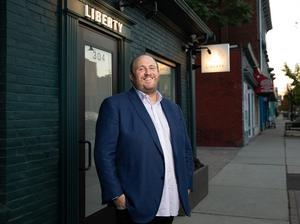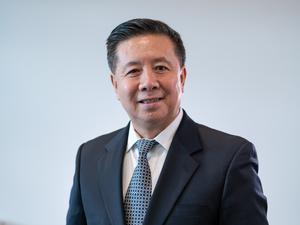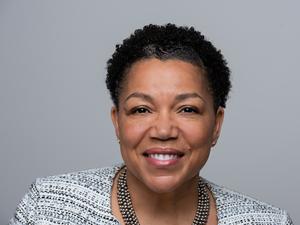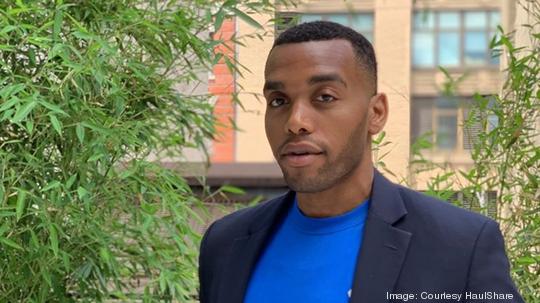
Tommy McCoy thought he'd become a doctor.
But the James Madison University grad’s medical school aspirations fell flat, so he instead moved back with his parents in Fairfax to work for their trash company. That’s when he came up with the idea for junk removal startup HaulShare Inc. — and he’s now raising $2 million for a national expansion.
The minority-owned, bootstrapped startup is riding a wave of pandemic-driven momentum it’s now working to maintain, after growing revenue from about $15,000 in 2019 to $187,000 in 2020 to a target of $550,000 this year, McCoy said.
HaulShare's platform connects property managers and residential homeowners with hauling companies. It saw business skyrocket through 2020 as trash piled up. Concerns about Covid-19 led to understaffing at solid waste and recycling companies like that of his parents, Champion Services. That meant waste centers had more debris and fewer people to process it, backing up both pickups at curbs and drop-offs at those dumps.
Property managers, especially, took the heat from residents whose trash wasn’t being picked up, “so they were scrambling to find a company to come do the service for them,” McCoy said. “HaulShare came at the perfect time.”

McCoy, who majored in biology and played football in college, didn’t have the GPA to get into the medical schools he wanted, he said. So he moved home in 2014 and started voraciously reading self-help and business books while doing sales and business development for his parents’ company.
“And I started noticing some issues within the company that I felt I could address,” he said. “Over time, I started to gain their confidence and I started to make more key business decisions that worked,” such as implementing cloud-based software and other subtle changes, he said.
That’s when he went to the local community college and bought the entire associates degree business curriculum, teaching himself finance, sales and marketing, and key business principles over six months, he said. “It felt like, ‘Maybe this is the thing that you really should be doing.’”
By mid-2015, he found the problem he’d set out to solve: the junk removal service offered by trash companies like Champion Services “was slow, it was clunky, it was expensive — over and over and over again, people would say ‘Is there a better option for us?’”
Eventually, he had the better option, and went live in August 2018 with HaulShare. What started as a service rolled within his parents’ business was now a third-party provider that it would refer to its customers — same-day, on-demand, coordinated and paid for online.
“We had hundreds and hundreds and hundreds of customers Day 1,” McCoy said.
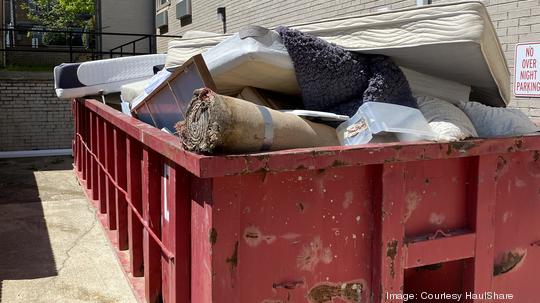
The technology, built by co-founder and fellow JMU alum Abhishek Luthra, aims to circumvent interaction between the customer and the residential trash service, because customer service is “notoriously a nightmare,” McCoy said.
Today, that platform serves two groups: 22 property management firms, who compose 90% of the company’s customer base, and roughly 500 residential clients, who make up the remaining 10% — because after starting with a focus on homeowners, it became clear in October 2019 that the business-to-business model brought the greatest return on investment, McCoy said.
The business has spent the past four months breaking into the industrial market. That means providing dumpsters — and subsequent removal services — at stadiums, buildings, apartment complexes and construction sites, McCoy said. But it’s also maintaining the hauler side, now with nine hauling companies generating business through its marketplace.
And if it gets the fresh funding, it will look to grow beyond the District, Maryland and Virginia, McCoy said. He plans to pinpointing the first expansion markets after the raise.
The $2 million would allow HaulShare, currently just McCoy and two part-time people plus a mentor, to bring on a full-time team. That involves making permanent positions for a head of customer service and a chief financial officer. It includes giving Luthra the ability to build out a backlog of features for the technology, and McCoy time to focus more on business development. And it means bringing on a friend with customer service expertise to reinvent customer service for the waste industry, McCoy said. “And we will very quickly be, probably, the standard of customer service in the industry, which will make the difference for us, for our business,” he added.
